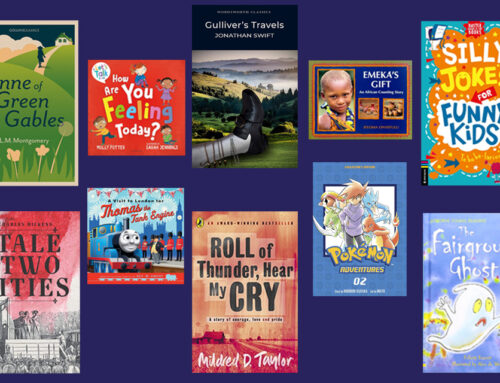From a young age, roleplay becomes an essential learning tool for a child. As we get older, this vital, natural instinct, which has a proven track record in the development of our social, creative, kinaesthetic, linguistic and communication skills, is all too often neglected.
One common misconception that arises when a child shows a keen interest in drama or role play, is that they belong on the stage. Whilst this may be the case later in life, it does not mean that as a parent you have to begin planning their Hollywood career path. Equally, it does not mean that you need to fear that their involvement in theatre will spark a desire to drift from conventional educational paths. Your child is simply exercising what we are all naturally born with, a need to learn through creative play. If this need shines brightly in your child, by supporting that instinct, you will be helping to enhance every part of their development for later in life.
Developing a Love of Theatre
Watching stories come alive is one of the most exciting, sensory and visceral experiences a child can have. If possible, expose your child to live theatre experiences from a young age. Live theatre can be expensive, but it doesn’t always have to be. Explore local youth theatres or even school productions and search for off-peak offers and discounts at your local theatres or see Kids Week for cheaper tickets for children during the summer
If you do not live in close proximity to London or other major cities, look to your local cinemas for screenings of live theatre from the National Theatre, Royal Ballet, Royal Shakespeare Company, among others.
Engaging in Role Playing at Home
Provide plenty of opportunities to roleplay stories in books, TV series, etc. that your child loves, or to make their own. Get your imagination going with costumes, props, puppets, scrap junk, etc. If your child struggles to come up with their own ideas, change events in the story and improvise what could happen next. Follow their lead and don’t worry about their story making sense. It is all about modelling and sharing roleplaying experiences and letting loose of inhibitions!
Encouraging Script and Poem Recitation
Many children enjoy learning passages or poems by heart, encourage this by taking part together with your child. Favourite play extracts or poems can also be read aloud or be part of a show for a friend or family member if your child is not too shy.
Finding the Right Class
Finding the right class or workshop can be a little bit like looking for a needle in a haystack to start. Drama is fundamentally a group activity and whilst one-to-one lessons and working towards graded performance exams have their validity, equal preference should be given to the experiences of a high quality group drama workshop.
Afterschool Drama Clubs
If you are lucky to have a drama club in your school, this is often a good first step. It can be a helpful introduction for a child who is very new to the idea of drama or performance. The success of this will obviously depend on the teacher taking the class and their level of experience and understanding, but it could be just the stepping stone your child needs to get started.
High Quality Youth Theatre Experiences
For your child to gain the most from their experience, look for a youth theatre which is part of a working theatre or arts centre. The participation and education departments of working theatres will generally have highly trained and experienced tutors and professionals leading their classes and workshops. By attending classes in a theatre setting your child will be immersed in the opportunities that the theatre has to offer, from staging productions to working with top industry professionals.
If this is not possible, due to your proximity to an established theatre or arts centre, search for classes or workshops which encourage creative involvement from their students or members. Children and young people should feel part of the creative process in every session and rehearsal, as this will enable them to have a genuine sense of ownership and pride in the work that they create.
Try to see the youth theatre stage a production in advance of enrolling your child. This will help you to gain an insight into the workings of the group and the content being explored. Look for a high creative standard, an imaginative choice of material and an innovative approach to storytelling. This will prove that your child is learning from the best and will be stretched to strive for their very best.
Drama Online
Taking into account the current Coronavirus crisis, there has never been a more important time to strive to keep the creative arts alive and now might just be a good moment to introduce drama and theatre into your child’s life. Top theatres are streaming their plays and online masterclasses are being held by leading professionals and theatres across the country. Whilst there are many barriers in place right now for us all, location or distance to your nearest theatre, may no longer prevent you from giving your child the very special lifelong gift of drama.
About the author: Mary Benzies studied Drama and Theatre at Trinity College Dublin, working professionally as an actor in Ireland before progressing into television and film and establishing Act One Drama School in Dublin, catering for students of all ages. Since moving to the UK, Mary has worked extensively throughout the East Midlands and has written, directed and produced award winning plays specifically for young people. Mary has worked as a teacher at Tolethorpe Youth Drama in Stamford for a number of years, taking on the role of Principal this year.






